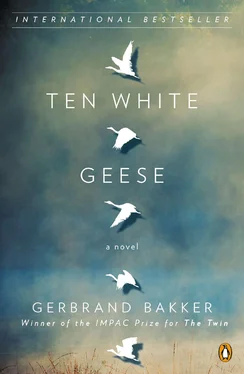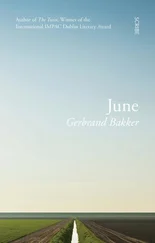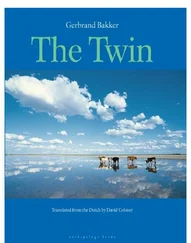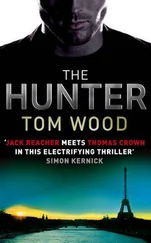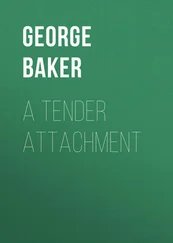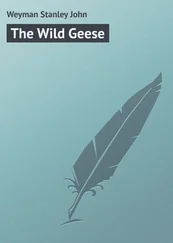*
The boy hadn’t sucked anything out of her, he hadn’t banished it. She could feel her body, there was very little energy in it. The train went slowly, thick clouds of steam and smoke — white and black — passed the windows. A conductor with an old-fashioned ticket machine hung around his bulging stomach came to punch their tickets and there was even an old man pushing a refreshment cart down the aisle. Volunteers. The boy took a coffee and a piece of fruit cake. When she saw that he wasn’t reaching for his wallet, she paid. He was no different to any other day, at most slightly excited at the prospect of climbing a mountain. They were sitting in padded seats with armrests and not, as she had imagined, on wooden benches. It was a Pullman carriage, first class, painted reddish brown. She had paid for the tickets. The boy had driven to Caernarfon. They were sitting opposite each other. Sitting next to each other was impossible in this carriage: she was facing forward; Bradwen, back. A cream-coloured curtain was swinging to and fro next to her head. Outside were green and brown fields, stone walls everywhere, bare trees with grey trunks, hills on their left that kept growing.
‘Not much snow,’ the boy said, with his mouth full of fruit cake and his face pressed against the window. ‘Maybe at the top. We have to get off in a minute.’
She didn’t say anything. She would say very little all day. Her suspicions had been aroused.
*
Rhyd Ddu station consisted of a single platform with a wooden waiting room and two rectangular beds of rocks and plants. There were a couple of houses in the distance. She got off the train and almost had to hold her breath, it smelt that fresh here. Fresh and sharp; she had no idea what she was smelling. Dead ferns? Rocks and boulders? Water? Pure air? A few other people had got off too. She looked up past a gently sloping hill. ‘Come on,’ said the boy. She gripped the alder branch tightly and followed. The sun shone in her face through the small panes in the waiting room, which together formed one large window. Like an ambitious film extra, a railway guard held a signalling disc aloft. The train moved off, blowing out clouds of black smoke.
A wide path which was raised in the middle led up past a shed that reminded her of the old pigsty. The boy walked ahead without looking back, but she didn’t want to ask him to slow down already. She concentrated on her stick and her breathing. Now and then she looked ahead or around. Sheep country without sheep, a neglected stone wall, wire fences, hikers. Looking back, she realised that she and the boy were bringing up the rear. The tractor path wound its way up slowly; she breathed in and out evenly, adjusting the swinging of the stick to the rhythm of her breathing. Why didn’t the boy look back at her even once? Look, she thought. Smell, feel. The sun is shining.
‘Wait!’ she called.
The boy waited until she was just behind him, then walked on. It was still fairly easy, you couldn’t call it a steep climb. In the far distance, a good bit higher, probably at the top, there was some kind of structure. The summit was completely white.
‘See that bump a bit to the right?’ the boy asked.
She looked along his outstretched arm. ‘Yes.’
‘We’re going to walk around that now. And see that ridge to the left of it that looks like it’s lower than the bump?’
‘Yes.’
‘That’s the crest we take to the summit.’
‘How far is that from here?’
‘It looks further than it is.’
‘Oh.’
‘Yr Wyddfa is the name of the mountain. Burial place.’
She looked at her feet. The path, the small stones, the short flattened grass. She wasn’t dizzy but her field of vision seemed unsteady, pivoting around the fixed point of her shoes and the end of her stick. Today, after taking two tablets, the pain was distant. She had actually had surprisingly little pain, it was more a vague but persistent sense of deterioration, a shrinking of her body, her mouth spouting words that weren’t in her head. Maybe she hadn’t had any pain because she had been on painkillers almost constantly. The boy had just said something incomprehensible, she only understood what he was talking about because she could see the cover of the Ordnance Survey map before her: Snowdon / Yr Wyddfa . She didn’t care what the name meant. As far as she was concerned the boy was already gone, he could say what he liked, he wouldn’t get much more out of her than ‘Oh’, ‘Yes’ or ‘No’. Maybe he’d fall off the mountain. She took a deep breath, the bite was gone from the air. The path, his heels, the grass. Walk. Keep walking. The path curved to the right and went through a brand-new gate and suddenly they were at the top of a cliff. An enormous void on her left, a couple of small lakes far below. Maybe I’ll fall off the mountain, she thought. Her head was itchy under the hat, the tassels swung back and forth annoyingly. She was trying with all her might to make it a day like any other and the swishing purple tassels helped, as did the clear path. The sun that cast a red and blue glow over the lakes. Red and blue. They looked minuscule from up here. Not much bigger than, say, a hotel pond. They were probably deeper. She thought of the bananas in her rucksack or were they in Bradwen’s? He had the water, she was sure of that. Maybe tomorrow would be a day like any other too, she hadn’t decided yet.
‘I’m thirsty,’ she said.
The boy stopped and took off his rucksack. He got out a bottle of water and handed it to her. She drank, water ran down her chin. Quickly she handed the bottle back. He drank too, but only after sticking a thumb in the neck and rotating it, his index finger squeezed against the thread. No, in the train just now he hadn’t been acting as if nothing had happened. ‘Onwards,’ she said.
*
Did the Evanses ever climb this mountain? They must have. Or was a mountain here like the Stedelijk Museum in Amsterdam for her? So close you took it for granted and never went. She imagined the boy as Farmer Evans on a sunny Sunday in his younger years and herself as his new bride, a girl with no interest at all in the cliff, the lakes or black birds, who can’t take her eyes off her husband’s back, longing for children. ‘Hey,’ she called. ‘Did Mrs Evans have children?’
‘No,’ said the boy, who was already a good ten metres ahead. He turned back, then walked on. ‘Otherwise they’d be living in your house now. Or sold it, at least.’
All at once she was exhausted and widowed, with the old-woman smell forcing its way into her nostrils. The boy was leaving her farther and farther behind. Her bones creaked, her corns were playing up, the wind tugged a lock of thin grey hair out of her bun. But I already knew that, she thought. Rhys Jones told me. Rhys Jones, his father. Why is the boy so keen to get away from me? She looked slightly to the left, following the ridge to the top. It seemed very far away. It was terribly white up there. The structure could just be an enormous pile of snow. I’ll never make it, she thought. Suddenly one of her legs was dragging.
*
Her aunt cheering her uncle on like a fanatical football supporter. She has something in her hand, an object. Her uncle working faster and faster: sawing, varnishing, hammering. Cats fleeing under the sofa. ‘Not a wall unit,’ she says. ‘Not a wall unit.’ Her aunt laughs, still cheering him on, urging him forward. Her mother’s there too. That’s how you do it! You just do things! One of the cats, the oldest, a tortoiseshell, slinks out of the house.
‘Wall unit?’
She opened her eyes. The boy was very close to her.
‘What?’
‘You said something about a wall unit.’
‘Not at all.’ Slowly she raised herself. Bright sunlight. Her shoulder touched something, a remnant of a wall. She used her arms to push herself farther up and leant on the sharp stones, the rucksack an awkward hunch between her back and the wall. They’d been climbing constantly and now she saw the depths for the first time: a model train station, an enormous lake beside the tracks, other mountains, hills, hazy sunlight — the picture on a box for a homeopathic cure. She panted. The boy squatted before her and pulled her a little closer by the shoulders. Then he wormed the rucksack off her back and got out the bunch of bananas. He gave her one and ate two himself, putting the skins in his own bag.
Читать дальше
